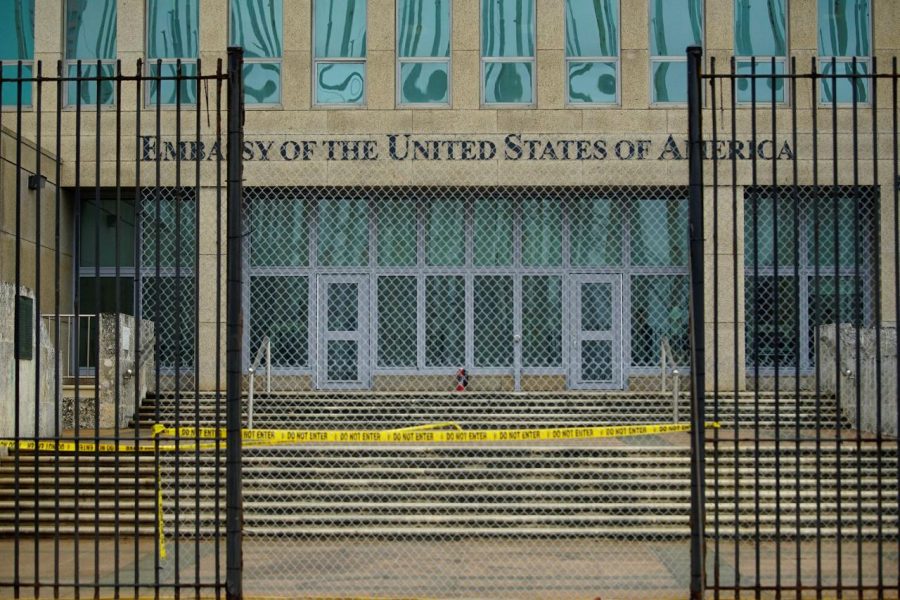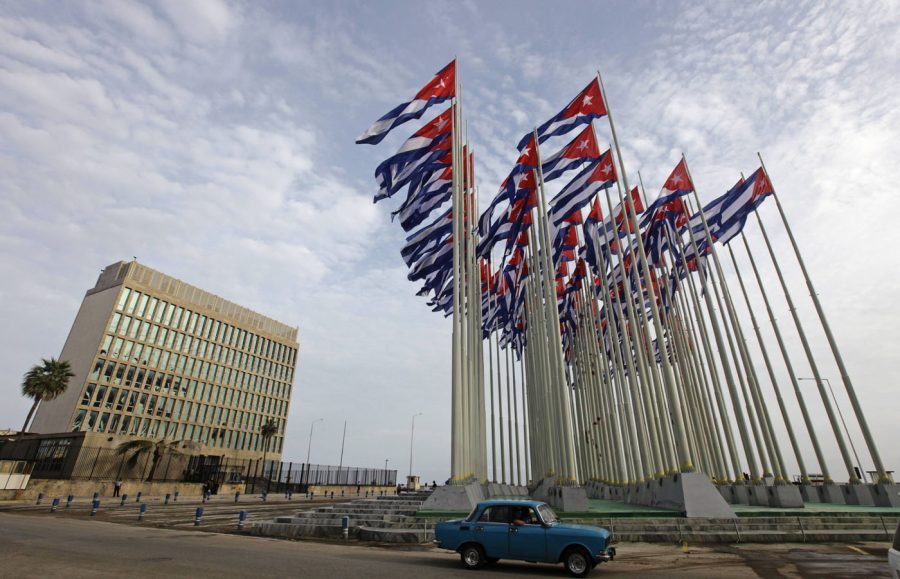The U.S. State Department announced on Friday that nonessential diplomats and their families are being ordered to leave Cuba, following a series of mysterious attacks against American diplomats on the island.
U.S. officials told CNN that at least 21 U.S. diplomats and family members have become ill after apparent sonic attacks, which have taken place since November.

The American embassy will continue operations in Cuba, but with a 60 percent reduction in its staff. Officials said the United States will stop issuing visas in Cuba –effective immediately—due to the staff reduction. They noted it’s not a retaliatory measure.
Tillerson announces measure to ensure safety of U.S. personnel in Havana
The State Department said consular officials in the American embassy will still be available to assist any American citizens in Cuba. Moreover, the State Department also issued a travel warning, cautioning Americans not to travel to the island, as they might be at risk of some of the attacks against diplomats.
Some of the alleged sonic attacks have been carried at hotels where Americans stay, according to a State Department official.
“The decision to reduce our diplomatic presence in Havana was made to ensure the safety of our personnel,” Secretary of State Rex Tillerson said in a written statement, according to CNN. “We maintain diplomatic relations with Cuba, and our work in Cuba continues to be guided by the national security and foreign policy interests of the United States.”
Meanwhile, the Cuban government has repeatedly denied any involvement in the so-called sonic attacks against U.S. diplomats. Cuban Foreign Minister Bruno Rodríguez met with Tillerson on Tuesday and reassured the country was not involved in the attacks.
Rodríguez also told Tillerson the U.S. was politicizing the incidents and stressed that his government would continue aiding U.S. authorities to investigate the origin of the attacks.
“The secretary told him independent of who is doing it, the Cubans have a responsibility for the safety and well-being of our people,” a senior State Department official told CNN.
Twenty-one U.S. diplomats and family members have been affected by what’s believed to be sonic attacks since November, causing a series of maladies that range from concussions and headaches to hearing loss and dizziness.
Cuba says measure will ‘affect bilateral relations’
The State Department warned that the attacks on U.S. diplomats had occurred at their residences and at hotels frequented by American citizens. The decision to remove U.S personnel from the island, while presented as a safety measure, sends a clear message of U.S. displeasure over the Cuban government’s handling of the attacks.
Cuban Foreign Ministry chief for U.S. Affairs Josefina Vidal said the Cuban government considers the decision is “hasty and will affect bilateral relations.” In a briefing on the state news channel, Vidal noted that Cuba is still keen to continue active cooperation with U.S. officials to determine what happened.
Meanwhile, the decision to stop issuing visas for Cuban citizens was received with bitterness by Cuban citizens, many who have family in the U.S and were eager to visit them. Diana Rodríguez, a 52-year-old who sells handicrafts in Old Havana, told reporters she had a visa appointment in October. She planned to go to Florida to visit family there.
“I won’t ever go there now,” she told Reuters. “This is a really strong blow that affects regular Cubans on the street. It’s just unheard of. What is going on with this man? Neither Bush nor his father were such sons of bitches.”
Meanwhile, some critics argue that the new measure by the Trump administration comes as an effort to tighten relations with the communist country. Bert Hoffman, a Latin American expert at the German Institute of Global and Area Studies in Hamburg, Germany, told Reuters that the incident “seems just a pretext to toughen U.S.-Cuba policy.”
Canadian diplomats also affected by sonic attacks
CNN reports that despite the incidents that have taken place in Cuba, most U.S. diplomats said they didn’t want to leave the country, noting the reductions likely played into the hands of whoever is behind the sonic attacks. Furthermore, the measure will leave the embassy understaffed during a crucial political period, as Raul Castro is reportedly expected to step down as president of Cuba.

Barbara Stephenson, the president of the American Foreign Service Association, said the organization that represents U.S. diplomats is against the evacuation.
“Our view is that American diplomats need to remain on the field and in the game,” she told CNN. “We have a mission to do and we’re used to operating around the globe with serious health risks. We are not saying there aren’t health hazards there. But there are health hazards everywhere and we want the same choice.”
Investigators of the case have not determined the source of the attacks, but they believe someone has targeted U.S. diplomats in Havana with a sophisticated device never used before, at least against American diplomats. U.S. and Canadian officials said Canadian embassy personnel has suffered similar health problems.
Source: CNN
